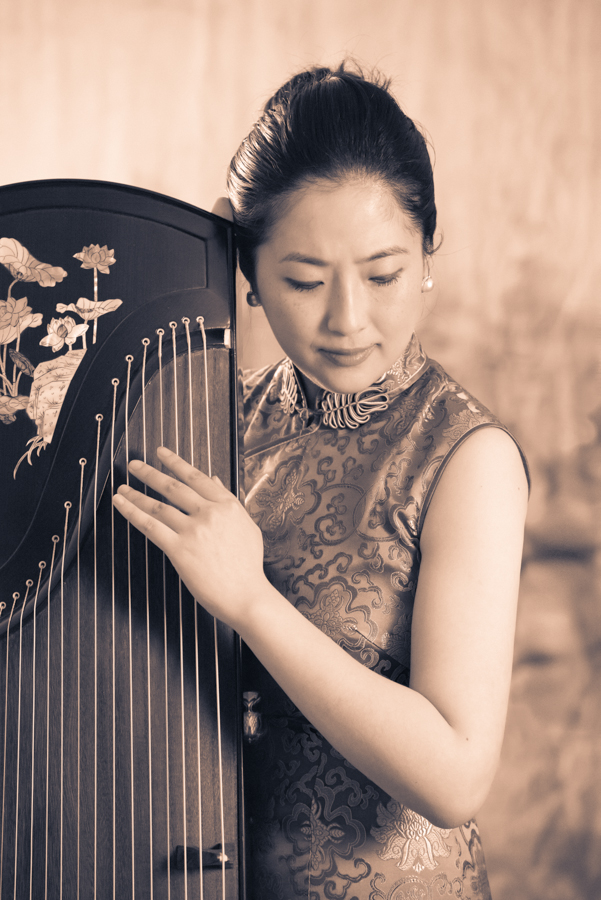Countdown to the Toronto Chinese Orchestra’s June 28th concert: WEEK 10 – Romance of Luyou and Tangwan
Love is universal, from young puppy love, through its romantic rides of joys and pains, to the twilight years’ desire for emotional evenness and faithful love. These emotions are amply covered by literary and artistic works everywhere: The traditional Chinese “The Dream of Red Chambers” and “A Pair of Peacocks Southeast Fly”, the modern Chinese Lu Xun’s “Mourning”, the western world’s “Romeo and Juliet”, and Hollywood’s “Love Story” and “Titanic”.
Born in 1125 AD Luyou was a great patriotic poet. Until his death in 1210, he had written close to ten thousand poems. His style is powerful and free and his themes were about resisting foreign invasions and recovering lost lands. Lu and his wife Tangwan’s tragic love duet spanned two decades, trading love poems with each other in one hundred and twenty words, mirroring the great love story of “Jia Baoyu and Lin Daiyu”. Even today, the locale of the duet in Shaoxing, “Shen Garden”, is still a very popular tourist attraction. Their stories, “Luyou and Tangwan” and “Cai Tou Feng (Phoenix Hairpin)”, are plaintive and heart breaking, and span the ages.
The Story: Tangwan was Lu’s cousin. They were very close since childhood. When they grew up they married and had a very loving and affectionate marital life. They spent their time composing poems and along with other literary pursuits. Unfortunately, Lu’s mother was not happy. She felt Lu was spending too much time with his wife and not paying enough attention to advancing his career in the royal court. A more important reason for her displeasure was Tangwan’s failure to conceive after three years, a very serious shortcoming for a woman in feudal China. Lu was forced to divorce Tang. As they parted, “holding hands and watching each other’s teary eyes”, each of them would remarry, “like swallows parting their ways; only in dreams they could trade their lovesick feelings.”
In 1151, seven years after the divorce, they accidentally crossed each other’s path in “Shen Garden”. This unexpected reunion brought great trauma. Spurred by his deep feelings, Lu took his brush and wrote the following on the wall of Shen:
“Her soft hands sent the golden wine. Spring is still here, but that sinister east wind (Lu’s mother) turns such pleasure into melancholy thoughts. All these years apart. Wrong, wrong, wrong!
Spring has not changed, but she has lost weight. Her thin handkerchief is soaked with tears. Peach flowers fell, but the pond has not changed. Our vow is still there but I cannot write to tell her. No, no, no!”
The next year, Tangwan re-visited Shen Garden and found Lu’s poetry on the wall. She was overwhelmed with heartache, and sorrow. She wrote on the wall in response:
“The world is unfair and people are not kind. Evening rain scatters falling flowers. The morning winds render tear traces old. I want to tell you something, but can only speak to myself leaning on the railing. Hard, hard, hard!
You and I each go our way; gone our days. My sick soul is unsettled like on a swing. The night is cold. Afraid my sorrow may be decried, I swallow my tears and pretend happiness. I cannot even have sad memories. Hide, hide, hide!”
Without Tangwan’s response, there would be no timeless love lore. The touching pathos of this tragic love duet has become synonymous with the sad song of love: this Shen Garden encounter and the two-year love poem exchange. Tangwan was grief-stricken and eventually died in misery. This extraordinarily talented poet, beautiful and brilliant, forever kept her beloved Lu in her thoughts and within her tender and melancholic gaze. She kept reciting her poem, word by word, forever carrying her sorrow in her heart.
Lu retired at age 75 and returned home, but Tangwan’s lingering presence was everywhere. He visited Shen Garden again. Although he was getting old, while walking alone in the park, he still recalled that unexpected encounter with Tangwan. He could still feel that wrenching pain, miserable and fresh. He composed “Shen Garden Nostalgia”:
“Tangwan has gone for forty years now. Willow trees in Shen Garden are also aging, no longer a source of flying petals. I am old too. This body of mine will soon become dust on the Ji mountain. But I still cannot avoid bursting into tears every time I visit here.”
During that time, under the feudal shackles of propriety, Luyou and Tangwan dared to pen poetry in public places, showing their thirst for love. Their touching words describe the powerful constancy of love through the ages.
Written by Roy Cheng
Translated by Kar Wah Chan





